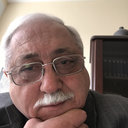Memory restoring and neuroprotective effects of the proline-containing dipeptide, GVS-111, in a photochemical stroke model.
Keywords
Abstract
Local thrombosis of the frontal cortex (Fr1 and Fr3 fields), caused by combination of the intravenous photosensitive dye Rose Bengal administration with focused high-intensity illumination of the frontal bone, was shown to provoke a pronounced deficit in step-through passive avoidance performance in rats without concomitant motor disturbances. N-Phenylacetyl-L-prolylglycine ethyl ester (GVS-111) administered intravenously at a dose of 0.5 mg/kg/day, for the first time 1 h after ischaemic lesion and then for 9 post-operative days, with the last administration 15 min before testing, attenuated the deficit. This treatment significantly diminished the volume of the infarcted area. Thus, post-ischaemic injection of GVS-111 demonstrated both cognition-restoring and neuroprotective properties. The cognition-restoring effect is probably based on an increase in neocortical and hippocampal neuronal plasticity. Neuroprotective effects of GVS-111 combine antioxidant activity with the ability to attenuate glutamate-provoked neurotoxicity and block voltage-gated ionic channels, i.e. the compound mitigates the main metabolic shifts involved in pathogenesis of brain ischaemia.


